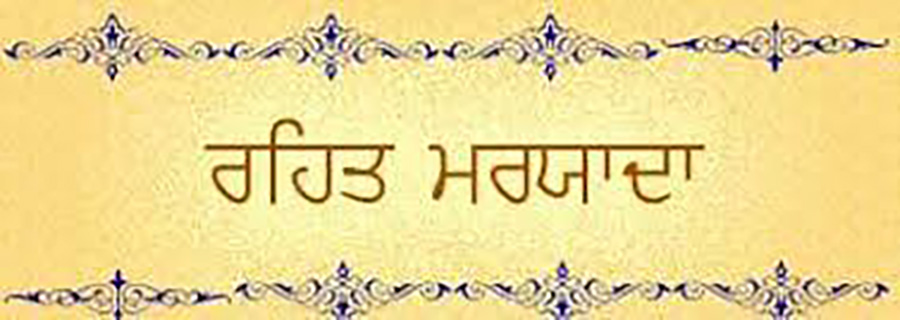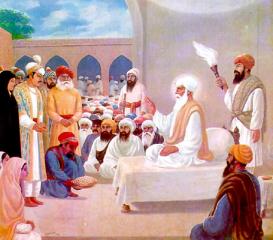Explore the traditions and rules of Sikh Rahit Maryada, guiding Sikhs' way of life from beliefs to social conduct. Understand the significance of the five K's.
Explore the rich history of Ramdasia Sikhs, from humble beginnings in leather work to key roles in the military, and their journey towards equality.
Explore the spiritual essence of sangat, the fellowship vital for Sikh community life, fostering selfless service and spiritual growth through shared devotion.
Discover how seva, the profound act of service in Sikhism, merges devotion and duty. Learn its significance in spiritual life and community service.
Explore the legacy of Takht Mall, a devoted Sikh who served Guru Angad, supporting the Guru ka Langar. Uncover Sikh history and dedication.
Discover the profound meaning of Ardas, a central supplication in Sikh rituals, reflecting a rich history of dedication and spiritual unity.
Explore the AZAD PUNJAB scheme's impact on Sikh politics and the quest for fair representation in pre-independence Punjab's legislative council.
BHATRAS (the term bhatra appears to be a diminutive of the Sanskrit bhatta, a bard), an endogamous and tightly knit group among the Sikhs with peddling and fortunetelling as their principal occupations. More than one story is current about their origin. However, the Bhatras themselves trace it to Baba Changa Rai of Sangladip (Ceylon), who was admitted as a disciple by Guru Nanak during his journey to the South. His name figures in the old text Haqiqat Rah Mukam Raje Shivanabh Ki. Changa Rai, himself a devout Sikh with a substantial following, added the suffix "Bhatra" to his name.
CHIEF KHALSA DIWAN. Until the emergence of more radical platforms such as the Sikh League (1919), Shiromam Gurdwara Parbandhak Committee (1920) and Shiromani Akali Dal (1920), the Chief Khalsa Diwan, established on 30 October 1902, was the main council of the Sikhs, controlling their religious and educational affairs and raising its voice in behalf of their political rights. It has proved to be a durable setup and it still retains its initiative in education, though its role in the other spheres has progressively shrunken over the years.
DASVANDH or Dasaundh, lit. a tenth part, refers to the practice among Sikhs of contributing in the name of the Guru one-tenth of their earnings towards the common resources of the community. This is their religious obligation a form of seva or humble service so highly valued in the Sikh system. The concept of dasvandh was implicit in Guru Nanak`s own line: "ghali khai kichhu hathhu dei, Nanak rahu pachhanahi sei He alone, 0 Nanak, knoweth the way who eats out of what he earneth by his honest labour and yet shareth part of it with others" (GG, 1245).
- 1
- 2




